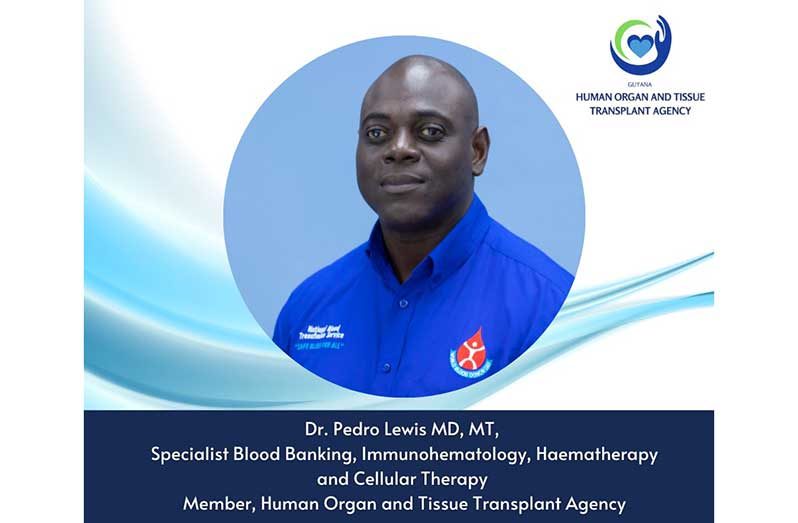notes decrease in maternal mortality
By Feona Morrison
ON World Blood Donor Day, which is observed annually on June 14, Dr. Pedro Lewis, Director of the National Blood Transfusion Service (NBTS), has urged people to donate blood, emphasising the critical need to save the lives of mothers and other patients across the country.
While appearing this week on the Ministry of Health’s programme—Health Matters—Dr Lewis highlighted that maternal hemorrhage remains one of the leading causes of maternal mortality.
He highlighted that the NBTS has played an important role in lowering maternal mortality.
“Those [mothers] must be given priority in terms of blood transfusion and we must assist the doctors so that we can save a mother. Most of the times, these mothers have five, six children. They’re part of a family. If those mothers were to pass the family becomes dysfunctional,” he said.
Based on the most recent statistical data, there has been a notable decline in maternal mortality rates in Guyana. The country’s maternal mortality rate has reached its lowest point in history. The current rate stands at 96 per 10,000 deliveries, a decrease from the 2017 rate of 170 per 10,000 deliveries.
The World Health Organization (WHO) reported that over 300,000 women die annually from preventable causes related to pregnancy and childbirth, with hemorrhage accounting for nearly 27 per cent of these deaths. However, the demand for blood extends beyond maternal care.
Dr. Lewis highlighted that blood transfusion may be necessary for other medical conditions such as accidents, thalassemia, and chronic sickle cell anemia. According to him, individuals with sickle cell anemia necessitate blood transfusions for the management and prevention of complications.
“These patients… they want to feel part of society. They want to go to school. They want to earn a living,” he said, adding that these individuals may require monthly blood transfusions to function normally. The Health Ministry is also exploring autologous transfusion— a procedure in which blood is removed from a donor (patient) and returned to his circulation at some later time.
“We want to save our blood for cases like heart surgeries. We have baby heart surgeries. We have adults that do surgeries on a monthly basis. And if these patients bleed, they utilise a large amount of blood units,” the director said, as he explained this type of blood transfusion.
A range of campaigns has been initiated by the Ministry of Health to foster the culture of blood donation. Furthermore, blood donation centres have been established throughout the nation, and collaborative efforts with community organisations, businesses, and educational institutions are underway to organise special campaigns.
According to Dr Lewis, the NBTS depends heavily on voluntary donations. He assured the public that the blood donation processes are simple and adheres to the highest safety standards to protect donors and recipients alike. “Thanks to the voluntary donors. We always need voluntary donors in the blood bank. All [blood] groups are important for us. This is the only way we can access safe blood. We can’t purchase it. Keep on giving! Keep on saving lives!” he added.
The theme for World Blood Donor Day 2024 is: “Celebrating 20 years of giving: thank you blood donors!”


.jpg)










